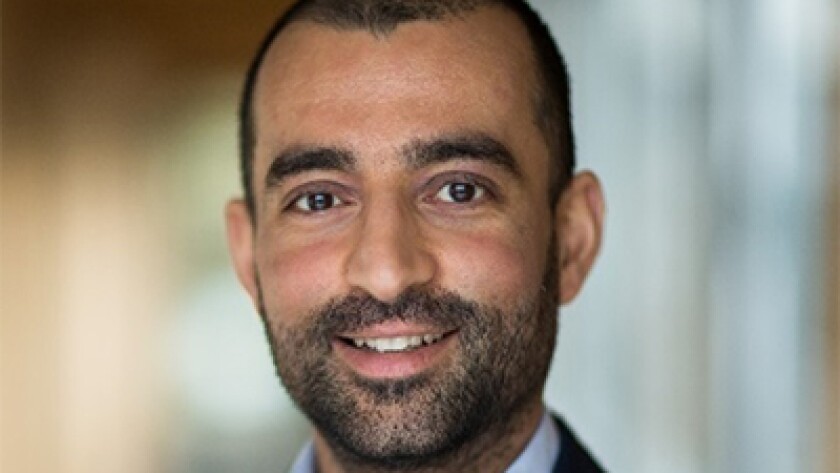VIEW ALL PANELS
The Covid-19 pandemic has highlighted not only the importance of resilient and sustainable business models but also the fact that profitability – and therefore investor returns – is dependent on how companies treat their employees and contribute to society. It has led investors to increase their allocations to environmental, social and governance (ESG)-focused funds and sustainable investments this yea. In the second quarter, for example, European sustainable funds attracted record inflows of €54.6 billion, according to data from Morningstar.
Any residual idea that responsible or sustainable investing requires a trade-off with returns has now been put to bed says Michael Meehan, chairman of the UK Sustainable Investment and Finance Association. However, there still remains a lack of knowledge in the financial and adviser community about those financial and non-financial returns. Reports tend to talk about the entire ESG industry as being homogeneous, but “not all ESG investments are created equal,” says Meehan.
Not all ESG investments are created equal

His point is that while a growing number of investors are looking to invest sustainably there remains confusion around what that means. Cléo Fitzsimons, sustainable investment lead at Cazenove Capital, points out that when the outperformance of ESG investments is highlighted, it can be misleading for investors.
“Sustainable companies tend to be higher quality companies with high quality management, so they are naturally likely to perform well. Also, there are themes within sustainability like healthcare or exclusions such as fossil fuels or alcohol that have resulted in outperformance simply because of macro events this year.”
During 2020, for example, funds excluding fossil fuels have benefited by avoiding the volatility in oil prices. Similarly, given the closure of pubs and restaurants during the pandemic, alcohol businesses have also suffered.
“There are some biases that mean ESG investments appear to have outperformed and it’s good to point this out,” says Fitzsimons. “To truly select sustainable investments, however, requires drilling down into each company and looking at how it treats its stakeholders.”
Amir Amel-Zadeh, associate professor at Saïd Business School, says that outperformance becomes more obvious at asset level rather than fund level because the latter tend to apply broad metrics that aren’t applicable to every company. “Environment issues are much more material for energy-heavy sectors, just as employee engagement may be more important for knowledge-intensive firms. When you apply criteria at a firm level then you can actually see outperformance by quite a margin,” he says.
While returns tend to grab the headlines, there are other factors that should encourage clients to invest sustainably, he adds. “ESG investments reduce risk in private wealth portfolios as well as being sources of diversification, for example.”
Environment issues are much more material for energy-heavy sectors

Greater clarity around terminology would be useful in helping private clients better understand what to expect from both financial and non-financial returns. Fitzsimons points out that there is a broad spectrum of investments that often get conflated. “ESG means assessing investments along the criteria of environment, social, governance in addition to the usual financial criteria – and ESG integration is now mainstream. Then there is ethical investing or negative screening where a private client would ask for a removal of tobacco stocks for example. These are all prerequisites to even offering a sustainable product and sustainable portfolios take these basics and then look for best performers.”
She adds there are also funds looking for positive sustainability outcomes, such as investing in clean tech or healthcare, and then impact funds that specifically seek out companies or projects making a real and measurable contribution to solving the world’s challenges or which are aimed at solving the UN sustainable development goals.
ESG integration is now mainstream

“There’s a lot of terminology, but if as an industry we can begin to use these terminologies in a concise way, it will be easier for our clients to navigate,” she says.
The non-financial returns across the broad spectrum also need to be clarified for investors so they can better understand whether their money is having a positive impact.
Gordon Power is the chief investment officer at family office and private equity firm Earth Capital. He says the question to ask is: “How can you measure whether the overall impact of a business is positive or negative, so that if you want to invest with positive impact, you can be certain that you are?”
Earth Capital has developed a framework to help answer this question, developing a methodology called the Earth Dividend. “It tests 30 different factors across nature resources, ecosystems, pollution, social and economic outcomes, and societies and governments scoring positive, negative or neutral on each one,” explains Power.
If a company scores positive overall, then Earth Capital will invest and where the company has a negative score Earth Capital will work with the management to create positive change. Power offers an example of an investment in a new sustainable toilet that uses 84% less water. “Overall, it’s a positive impact investment, but the bowl is ceramic, which is a dirty industry, so we now source ceramics using renewable energy. We’ve also sought to reduce the amount of plastics used to manufacture the toilet and to switch to recycled plastic. We can show with a lot of transparency how our investment has made an impact, as well as resulting in larger margins.”
Such engagement is possible at a private equity firm like Earth Capital and Power says he expects private equity to start leading the way in impact investing given their ability to make businesses more resilient.
We can show with a lot of transparency how our investment has made an impact

In public equity markets such an impact is more difficult to detect and influence. Given the lack of resources for monitoring hundreds of thousands of investments, decisions tend to lean on the voluntary data that companies provide as well as ratings given by sustainable ratings agencies like Sustainalytics and MSCI. The challenge, however, is that those ratings are not always reliable.
“Eighty percent of investors still feel that they need more data and that it is understandable,” says Meehan. He points to UK fashion company Boohoo as an example. In the summer it emerged that workers at one of the firm’s factories were paid just £3.50 an hour and were not being protected against the coronavirus, yet MSCI had given the company a double-A ESG rating and its stock was included in many large ESG funds.
“This information would not have been difficult to find out and yet analysts missed it, and that is frustrating to investors,” says Meehan. “We can’t just rely on ratings providers or those looking at standards for guidance and not digging a bit deeper. We need better quality data.”
We are heading in the right direction at least

Guillermo Hermida, ESG strategy director, CaixaBank Private Banking, says the different metrics being used to rate companies and the diverging ratings that different agencies produce make it difficult for portfolio managers and advisers to make decisions. “It’s not like the bond market where there is largely agreement among the ratings providers.”
Amel-Zadeh says the lack of coherence around sustainability metrics means a whole new skill set is required for relationship managers – one that involves evaluating and discerning the many ratings out there.
The EU Taxonomy is therefore welcome, says Hermida, as it will “create a baseline”. Regulation around disclosures so that companies provide the right information to investors to help them make their decisions would also be useful, he says. Otherwise only firms with the sufficient resources to carry out data-mining will be the beneficiaries of sustainability outperformance. “We really need this to be available for the whole industry. We are heading in the right direction at least.”
“Transparency is really key,” adds Fitzsimons.
That transparency is also essential between wealth manager and client. The third annual report from the University of Zurich’s Center for Sustainable Finance and Private Wealth in November 2019 stressed that: “Banks must be able to communicate clearly to the client how their ESG integration process works – what type of data is used, how does it enter the decision process, what are the exceptions and what level of analyst discretion is possible – and how this supports the investment thesis.” The Center has been tracking European private banks’ sustainable investment offerings.
The importance of the wealth management industry moving in unison in terms of sustainable investments – whether around data required or language used – is imperative says Power. “We have 10 to 20 years to solve these global challenges and so we have to mainstream sustainability.”









